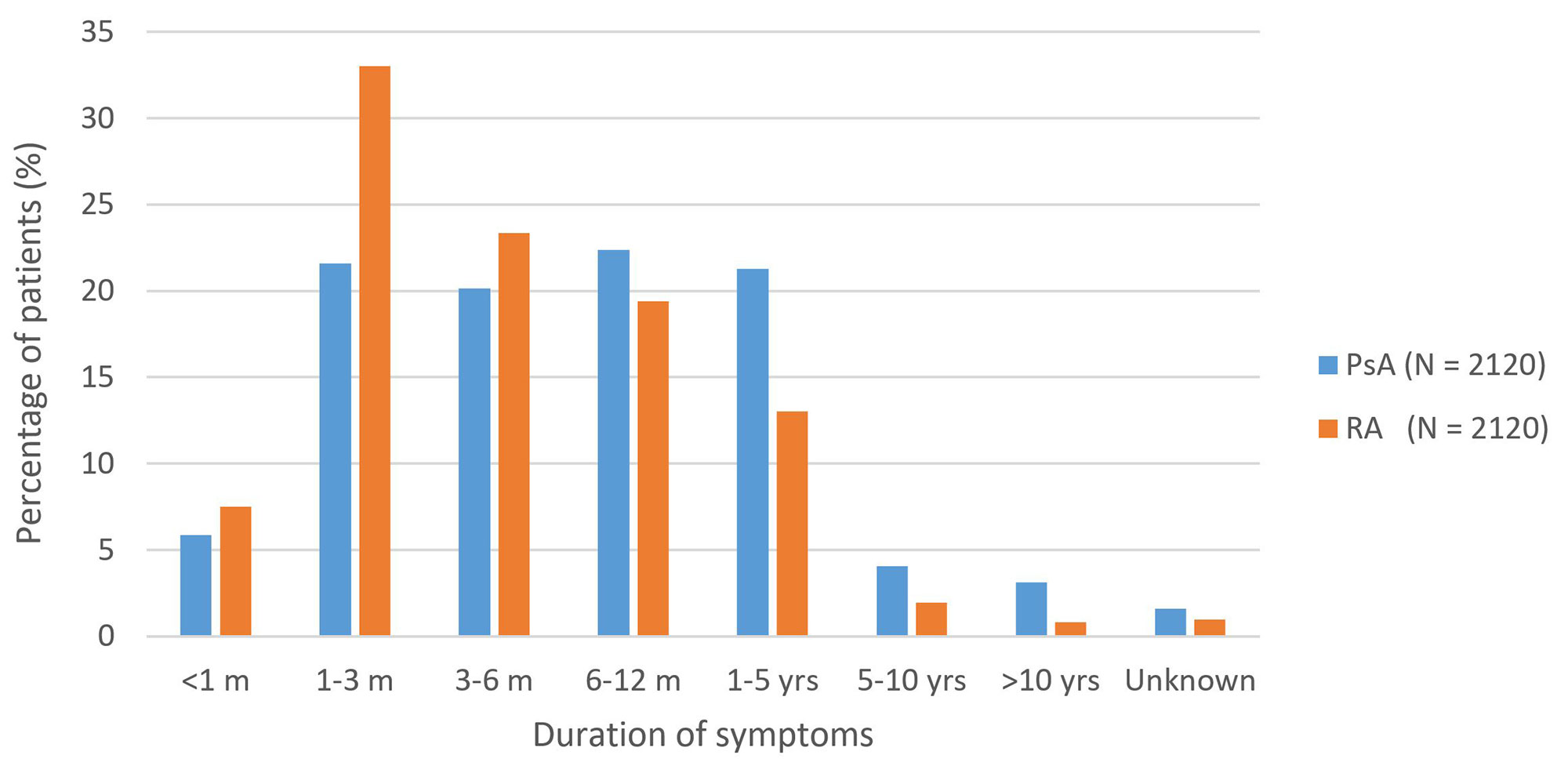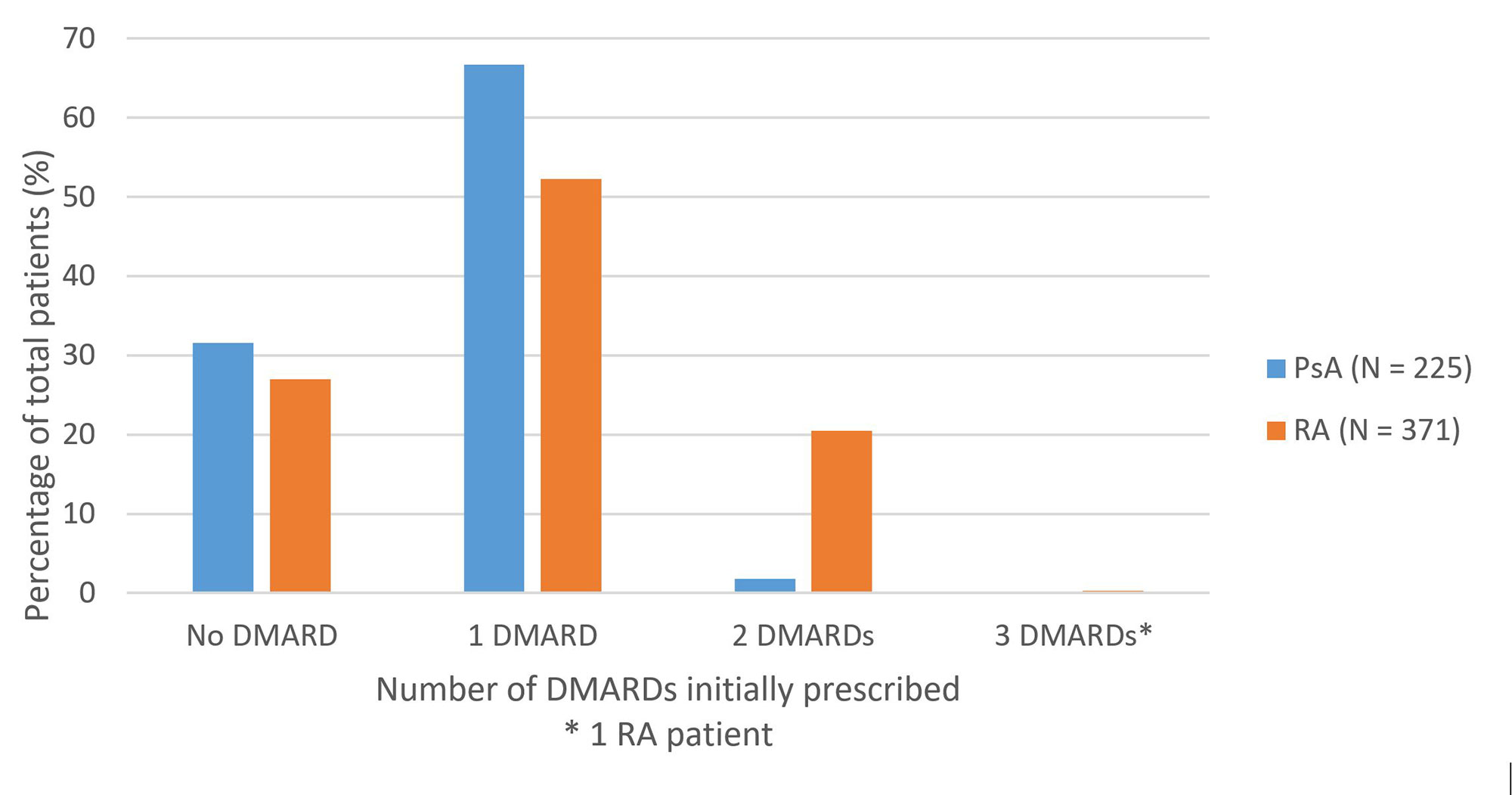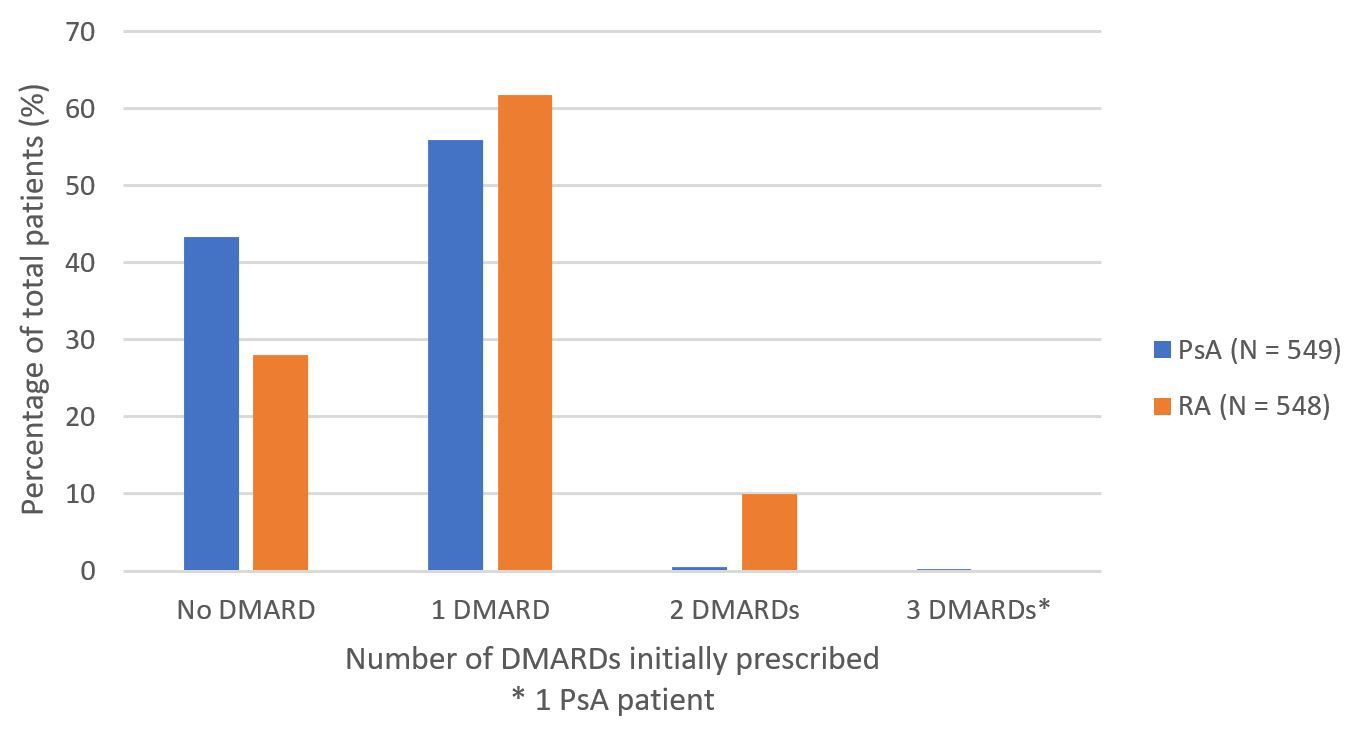Session Information
Session Type: Abstract Session
Session Time: 4:30PM-6:00PM
Background/Purpose: To compare the time from symptom onset and General Practitioner (GP) presentation to referral and diagnosis for patients with psoriatic arthritis (PsA) to those with rheumatoid arthritis (RA), and compare initial treatment, including treat to target and Disease Modifying Anti Rheumatic Drug (DMARD) therapy between the two cohorts.
Methods: We performed a nested matched cohort study within a national audit dataset. The 2018 National Early Inflammatory Arthritis Audit in England and Wales collected data on patient demographics and time from symptoms and GP presentation to referral and diagnosis. For patients with polyarticular disease, who were followed up as part of the audit, it also collected generic arthritis outcomes including Disease Activity Score-28 (DAS-28) and data on treatment initiation. Eligible patients >16 years old, diagnosed with PsA between May 2018 and November 2019, were identified and matched at a 1:1 ratio on age and sex to patients diagnosed with RA. Survival analysis was used to evaluate differences in diagnostic delay and chi-square tests between treatments offered; regression analysis was used to evaluate differences in disease activity between PsA and RA patients.
Results: 2120 PsA patients were matched to RA patients (58.6% female; mean age 49.5 years ±14.2), of which 1250 had polyarticular disease and had follow up data available in the audit. PsA patients had a longer duration of symptoms prior to referral than patients with RA (P< 0.001), and a longer duration between presentation to their GP and diagnosis (HR 0.87, 95%CI 0.79-0.96, P < 0.007). The delay to diagnosis in PsA was most evident amongst people with longer symptom duration (Figure 1). Baseline disease activity was similar between PsA and RA, DAS28 4.1 (sd1.2) and 4.5 (sd1.3) respectively and a slightly lower proportion of PsA patients agreed a treatment target of low disease activity or remission (84.1% vs 88.1% p = 0.036). However, considerably fewer DMARDs were prescribed in PsA than RA at baseline (54.0% vs 69.0%) (P< 0.001, Figure 2 and 3) and fewer corticosteroids (47.6% vs 75.8% P< 0.001). By 3 month follow-up, the percentage who had commenced DMARD therapy had increased to 73.9% and 87.5% (p < 0.001) for PsA and RA respectively. Less improvement in disease activity was observed amongst those with PsA vs RA: DAS28 was 0.27 (95%CI 0.13-0.40) higher at 3 month follow up in PsA compared to RA patients, adjusting for baseline DAS28 and DMARD therapy use. Comorbidities were similar between PsA and RA at baseline, with higher proportions of lung disease (3.5% vs 8.7%, p< 0.001) and fracture (1.0% vs 2.0%, P< 0.05) in those with RA.
Conclusion: Compared with RA, people with PsA have a longer duration of symptoms before referral and a longer interval between presentation to the GP and receiving a diagnosis. Most people agreed a treat to target strategy but fewer DMARDs were commenced for those with PsA compared with RA and a lower improvement in disease activity was achieved at 3 months. Future work will investigate impact on patient reported outcome, comorbidities and long-term impact of delay to diagnosis using PsA specific outcome measures, including those with other PsA phenotypes not followed up in the audit.
To cite this abstract in AMA style:
Charlton R, Coates L, Galloway J, McHugh N, McGrogan A, Hackett S, Brooke M, Tillett W. Diagnostic Delay and Less Intensive Therapy for People with Psoriatic Arthritis Compared with Rheumatoid Arthritis: A Nested Matched Cohort Study from Within the UK National Early Inflammatory Arthritis Audit [abstract]. Arthritis Rheumatol. 2022; 74 (suppl 9). https://acrabstracts.org/abstract/diagnostic-delay-and-less-intensive-therapy-for-people-with-psoriatic-arthritis-compared-with-rheumatoid-arthritis-a-nested-matched-cohort-study-from-within-the-uk-national-early-inflammatory-arthrit/. Accessed .« Back to ACR Convergence 2022
ACR Meeting Abstracts - https://acrabstracts.org/abstract/diagnostic-delay-and-less-intensive-therapy-for-people-with-psoriatic-arthritis-compared-with-rheumatoid-arthritis-a-nested-matched-cohort-study-from-within-the-uk-national-early-inflammatory-arthrit/



